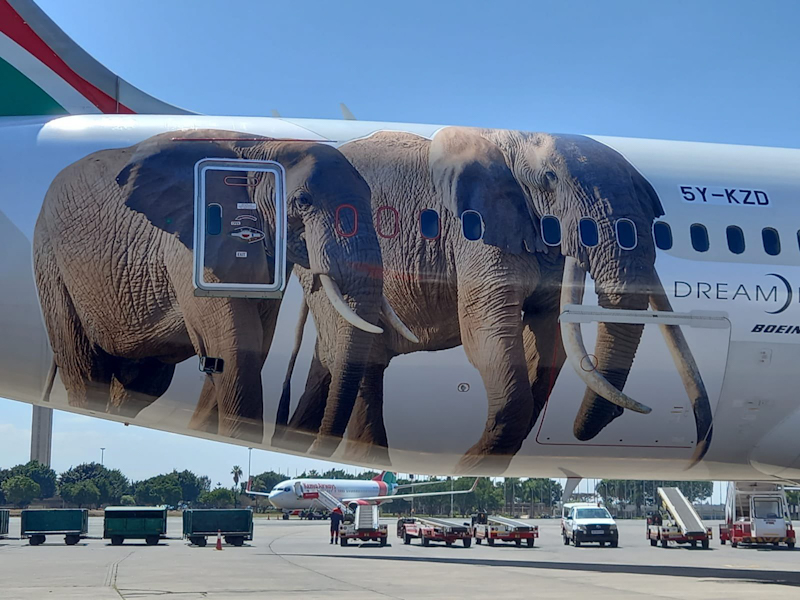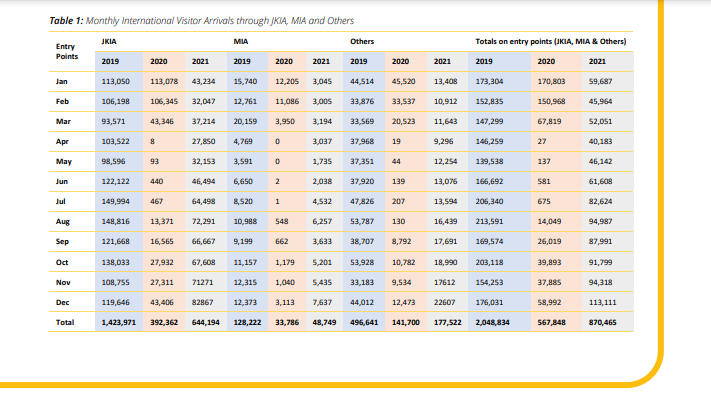Kenya tourism revenues in 2021 increased by 60.4 per cent to Ksh146 billion, compared with Ksh 88 billion in 2020, the Tourism Ministry said Wednesday.
Data from the Tourism Sector Performance Report 202, the industry marked a slight recovery registering 870,000 tourist arrivals up from 567,000 the previous year.
Going into 2022, Tourism Minister Najib Balala says the earnings are projected to climb Ksh 173 billion.
“The numbers are still low, but we are optimistic that we will eventually go back to our all-time high international visitor arrivals that are 2019, or even surpass it. This is because the majority of our masses are vaccinated and international visitors will have faith in our destination again,” Mr Balala said.
In the year, the USA was the top source market for tourists with 136,981 arrivals. Uganda came in second with 80, 067 arrivals followed by Tanzania and UK with 74,051 and 53,264 arrivals each.
Overall, international visitor arrivals in 2021 stood at 870,465 with Jomo Kenyatta International Airport being the leading entry point from 567,848 in 2020.
According to the data, holiday tourist arrivals were 299,802 accounting for 34.44 per cent followed by those visiting their families at 257,357 (29.57 per cent), while 229,804 visitors were registered as those who visited for business, and for Meetings, Incentives, Exhibitions, and Conferences (MICE). Another 46,654 (5.36 per cent) people were recorded as being on transit.
Only 19,053 visitors (2.19 per cent) came to Kenya for education purposes and only 1 per cent came for medical treatment.
“We have a strategy of future growth and one of them is to ensure we expand and modernise Kenya’s aviation industry and equip our main international airport, Jomo Kenyatta International Airport, with modern international facilities that delivers an efficient and friendly customer experience; and expand Ukunda and Malindi Airports which are key for international tourist arrivals,” said Mr Balala.
Job losses
Balala also noted the negative impact the pandemic had caused to the sector through travel restrictions, daily curfew hours and partial lockdowns.
“In terms of the impact of Covid-19, we have lost during that time, 1.1 million people lost their jobs particularly in all sectors accommodation, transport, attractions, products then shopping as well,” said Balala.
Fortunately, a resurgence was witnessed from October 2021 when the containment measures were lifted largely attributed to a resilient domestic sector which increased its bed night occupancy rate by 103.5 per cent to 4.2 million against the international rate’s 0.05 per cent.






2 Comments
Pingback: Samburu National Reserve Welcomes Twin Baby Elephants
Pingback: Tourism: First Chartered Flight from Bulgaria Arrives in Coastal Kenya